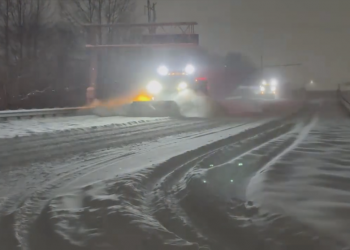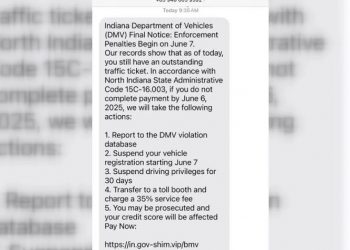Indianapolis, Indiana – A Republican-backed measure that would require voters to provide more identifying information in order to obtain mail-in ballots received final approval from Indiana lawmakers on Tuesday, defying claims that the stricter requirements would make voting more difficult for a large number of people.
Along party lines, the Indiana House voted 64 to 30 in favor of the Senate-approved measure. The Republican governor Eric Holcomb will review the bill after the voting.
The stiffer mail-in voting regulations were approved after prior attempts to do so in the Republican-dominated Legislature the previous two years failed, even as former President Donald Trump and many of his followers fueled bogus allegations that fraud caused his defeat in the 2020 election.
A photocopy of a government-issued ID card or at least two ID numbers, such as a 10-digit driver’s license or the last four digits of a Social Security number, must be included with the voter’s paper application for a mail-in ballot in Indiana.
By bringing the identification standards for mail-in votes into line with those for in-person voting, bill sponsors Republican Rep. Tim Wesco of Osceola has maintained the measure was intended to increase voter trust in elections.
The amendments would go into effect on July 1 and be necessary for mail-in votes cast in the state’s city and town elections this fall.
According to Terre Haute, Indiana, Democrat Tonya Pfaff, it is “unnecessary to make it more difficult” for military personnel and senior voters to vote by mail.
“It won’t make elections safer and only serves to hamper democracy,” Pfaff said.
Voting rights organizations contended that since county election workers already have to verify that an applicant’s signature matches their voter registration record, tougher ID requirements are unnecessary. Instead of increasing Indiana’s low voter turnout rates, these groups unsuccessfully advocated for eliminating the state’s limits on who may cast mail-in ballots.
The modifications, according to opponents, would make it more likely for “voters to be tripped up because of a bureaucratic problem.”
Some of those who spoke in favor of the bill before MPs claimed that voters are “screaming” for stricter standards regarding mail voting and that the existing signature-matching procedure is not rigorous enough.




















































































